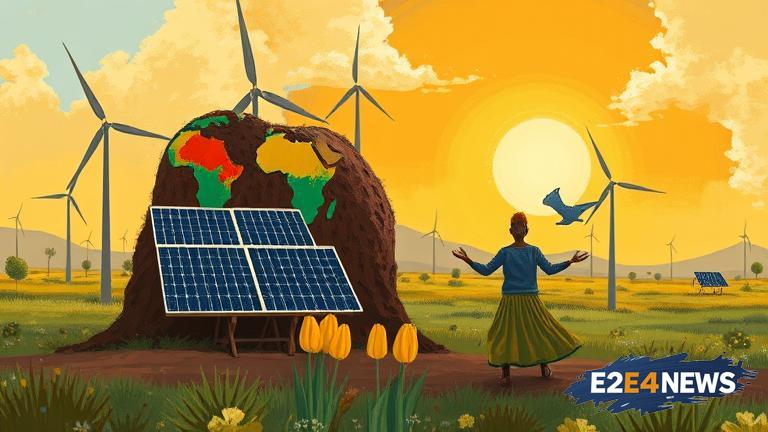The African continent is witnessing a significant shift towards renewable energy, driven by the need to address the pressing issues of energy access, energy security, and climate change. With many countries still struggling to provide reliable and affordable electricity to their citizens, renewable energy has emerged as a viable solution. Solar and wind power are leading the charge, with countries like South Africa, Egypt, and Morocco investing heavily in these sectors. The African Union’s ambitious goal of achieving 100% access to electricity by 2030 has further accelerated the adoption of renewable energy. Governments are implementing policies and regulations to support the growth of the renewable energy industry, including tax incentives, feed-in tariffs, and net metering laws. Private sector investment is also flowing in, with companies like Vestas, Siemens Gamesa, and Enel Green Power establishing a presence on the continent. The cost of renewable energy technologies is decreasing, making them more competitive with fossil fuels. Energy storage solutions, such as batteries, are also becoming more affordable, enabling the widespread adoption of intermittent renewable energy sources. Furthermore, the integration of renewable energy into the grid is being facilitated by advancements in smart grid technologies and energy management systems. The benefits of renewable energy are numerous, including reduced greenhouse gas emissions, improved air quality, and enhanced energy security. Additionally, the renewable energy sector is creating new job opportunities and stimulating local economies. However, challenges persist, including the lack of infrastructure, limited access to financing, and the need for greater regional cooperation. To overcome these hurdles, international cooperation and knowledge sharing are essential. The European Union, for example, has launched initiatives to support the development of renewable energy in Africa. Similarly, the African Development Bank is providing financing and technical assistance to countries seeking to transition to renewable energy. As the continent continues to urbanize and industrialize, the demand for energy will only increase, making the transition to renewable energy a matter of urgency. In conclusion, Africa’s renewable energy revolution is gaining momentum, driven by a combination of government policies, private sector investment, and technological advancements. With the right support and cooperation, the continent can unlock its vast renewable energy potential, ensuring a sustainable and prosperous future for generations to come. The growth of the renewable energy sector is also expected to have a positive impact on the environment, reducing pollution and mitigating the effects of climate change. Moreover, the development of renewable energy can help to reduce poverty and improve living standards, particularly in rural areas where access to energy is limited. Overall, the future of renewable energy in Africa looks promising, with the potential to transform the continent’s energy landscape and drive economic growth and development. The use of renewable energy can also help to promote energy independence, reducing reliance on imported fossil fuels and enhancing energy security. As the world transitions to a low-carbon economy, Africa is well-positioned to play a leading role, leveraging its abundant renewable energy resources to drive growth and development. In the coming years, it is expected that renewable energy will become an increasingly important part of the continent’s energy mix, helping to meet the growing demand for electricity and promoting sustainable development.
